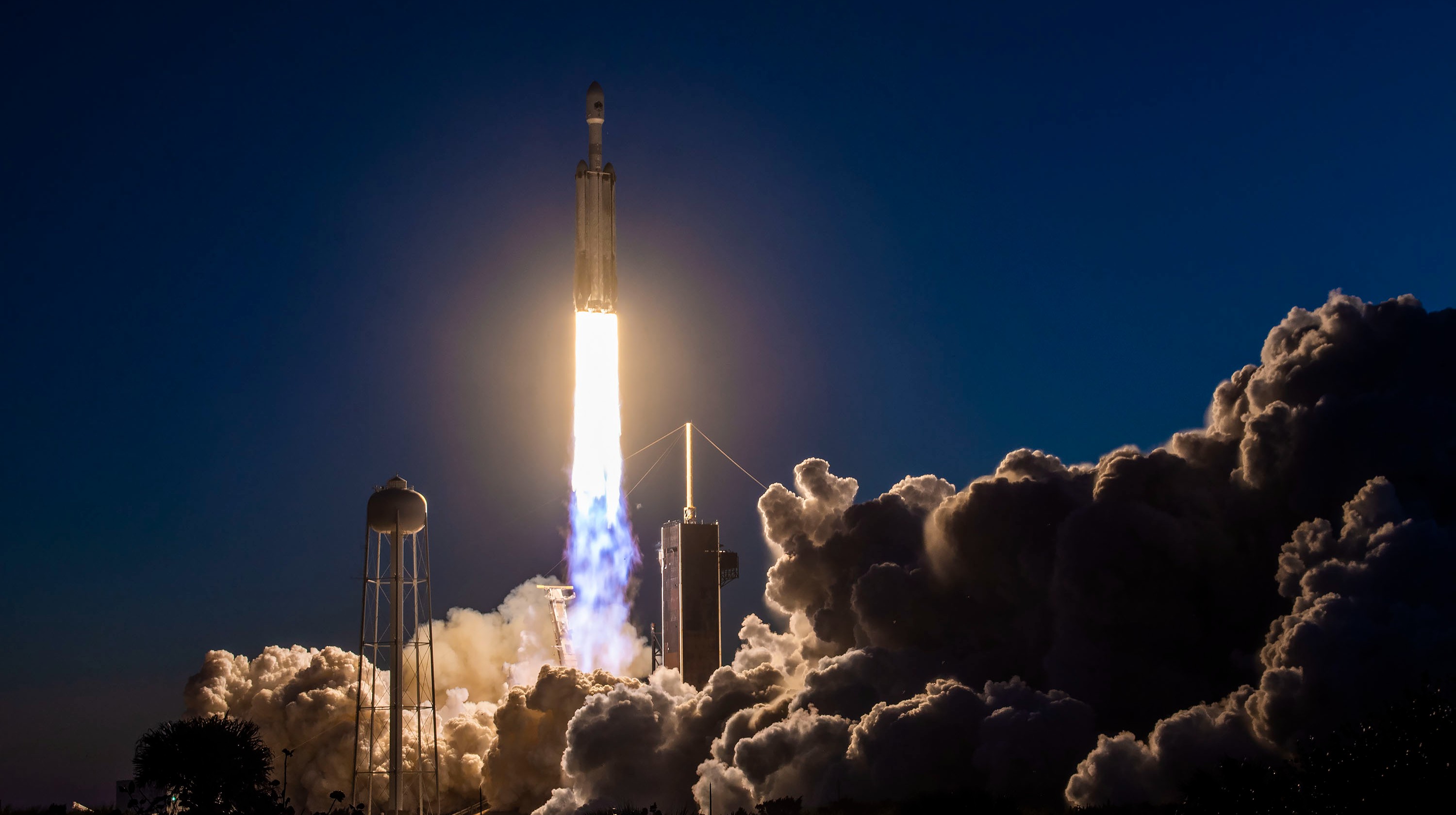
SpaceX's powerful Falcon Heavy rocket will launch for the seventh time ever tonight (July 26), and you can watch the epic action live.
The Falcon Heavy is scheduled to lift off tonight at 11:04 p.m. EDT (0304 GMT on July 27) from Pad 39A at NASA's Kennedy Space Center in Florida. You can watch it live here at Space.com, courtesy of SpaceX.
It will be a record-breaking mission: The spacecraft going up tonight, called Jupiter 3, is the largest commercial communications satellite ever built, according to its operator, Hughes Network Systems.
Related: SpaceX launches 3 satellites to orbit on 6th-ever Falcon Heavy mission
The Falcon Heavy is the second-most powerful rocket flying today, after NASA's Space Launch System rocket, which debuted in November on the agency's Artemis 1 moon mission. (SpaceX's Starship vehicle is more powerful than the SLS but is not yet operational.)
The Heavy consists of three strapped-together first stages of the company's workhorse Falcon 9 rocket, with the central booster topped by an upper stage and the payload.
These first stages are designed to be reusable, and SpaceX will attempt to land two of them back on terra firma about eight minutes after liftoff tonight. The central booster, however, won't have enough fuel left over for the return trip and will ditch into the ocean after launch.
That latter detail speaks to the immense size of Jupiter 3 and how far away it's headed — toward geostationary orbit (GEO), which lies about 22,200 miles (35,700 kilometers) above Earth.
The satellite, which was built by Maxar Technologies and will service customers in the United States and Latin America, weighs 10.1 tons (9.2 metric tons), making it heavier than any payload ever launched toward GEO. When fully deployed, Jupiter 3 will feature a wingspan similar to that of a commercial airliner, according to Hughes.
The Falcon Heavy launched for the first time in February 2018, sending Elon Musk's red Tesla Roadster into orbit on a highly anticipated and very photogenic test flight. It flew again in April 2019 and June 2019 but then endured a 40-month dry spell caused primarily by delays in the development of the satellites it was slated to carry.
But the Heavy is now picking up the pace. Tonight's liftoff will be the rocket's fourth in the past eight months, after launches in November 2022 and January and May of this year.







